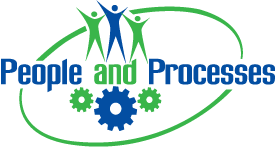|
Hello. I'm Jeff Shiver, Managing Principal of People and Processes. Today I want to share some thoughts with you around planner-scheduler education.
At many places, when you hire a new planner one of the first things you think about is, "Let's send them off to a formal classroom training." That's great. We really want to do that because education is key to the planner's success at the end of the day. But that's not the only thing. We like to say that the formal classroom training is really only half of the actual training itself. The other half really should come on with coaching and mentoring.
|
|
There's a follow-on activity after the training. A month later, you bring in a coach, and that coach sits down with the planner, and actually walks that mile-in-the-moccasins type thing to understand, "Okay, what are the obstacles?" "What are the obstacles that are preventing the planner scheduler from actually creating next week's schedule, or from putting together a plan for a particular job, or something like that?" Maybe it's your Operations Partner, as an example. That coach sits with the planner, walks that mile, and understands the obstacles and brings those back to management to help you resolve them.
|
|
Also, what about the job planners themselves?
I'll share this story with you. I was doing a class in California. It wasn't planning and scheduling. It was around maintenance management, basically like a Maintenance Management 101 type thing, and the planner came up to me and he said, "You know, Jeff, you cover planning and scheduling. Years ago I went through a planning and scheduling class but the piece I forgot when I went back to my organization was how to create a job plan and I've never created one."
I was like, "Wow, that's one of the whole functions of planning and scheduling, to create reusable job plans." But he had missed that whole concept, just from going back and trying to apply, and it had been two years since he had gone to the planning and scheduling class.
|
|
When you think about planning and scheduling education for your people, it's not just the education. Consider coaching and mentoring as well. That's probably one of the bigger components, after the actual classroom. That's the other half that many companies miss.
Hope you enjoyed the Tip. I'm Jeff Shiver, People and Processes. Have a great day.
|

